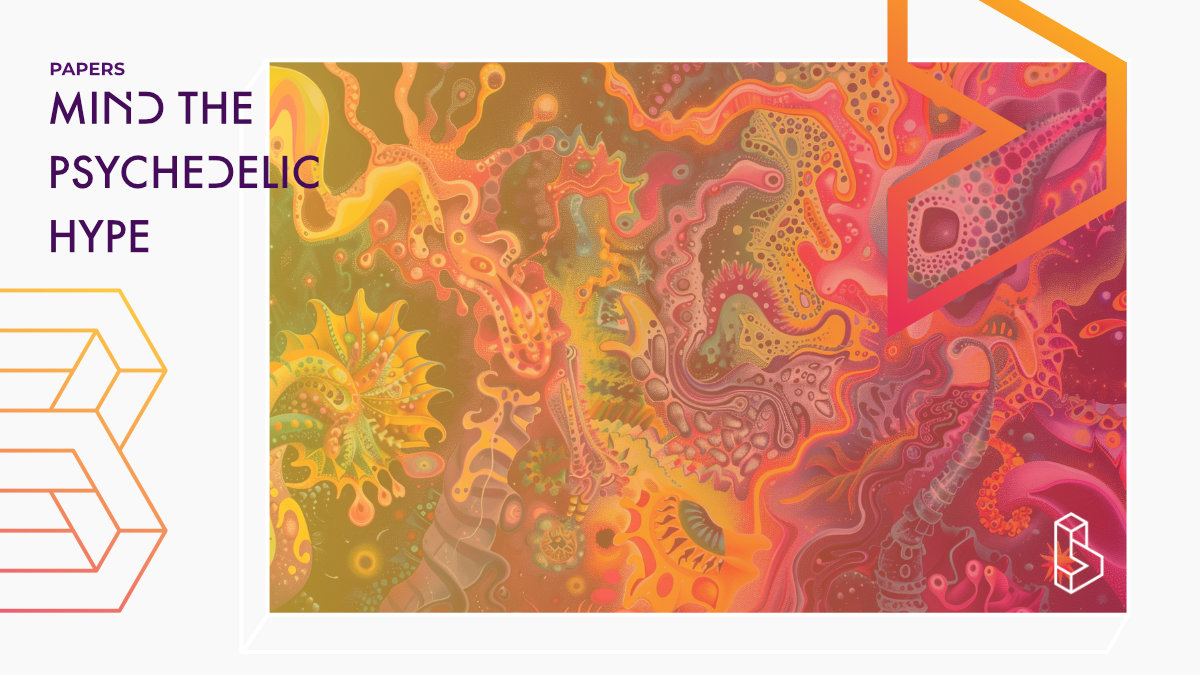This commentary (2024) provides an evidence-informed assessment of psychedelic research for treating depression. It discusses the shift in media reporting from overstating the risks to overly positive hype and emphasizes the need for clear science communication to set public expectations and inform policy decisions accurately.
Abstract of Mind the Psychedelic Hype: Characterizing the Risks and Benefits of Psychedelics for Depression
“Rationale: Psychedelic research re-emerged from a period of suppression into the so-called psychedelic renaissance. In parallel, most media reporting has shifted from the overstatement of the risks of psychedelics to overly positive hype. As the empirical evidence is more equivocal than frequently portrayed, the conclusions about the effectiveness of psychedelics should be considered preliminary. Poor science communication about psychedelics’ therapeutic potential may lead potential participants or patients to feel misled and policy decisions to be misinformed. An evidence-informed characterization of their risks and benefits is needed. Objectives: This article assesses the state of psychedelic research for treating depression and the effect sizes of psychedelics on therapeutic outcomes, the risk of bias, and the prevalence of adverse effects. We review research on the risks and benefits of psychedelics and discuss how the following depression treatments have shown decreasing effect sizes over time: (1) cognitive behavioral therapy, (2) mindfulness interventions, (3) selective serotonin reuptake inhibitors, and (4) ketamine. We speculate that a similar trend may occur for psychedelic treatments. Results and conclusions: It is likely that larger and better-controlled psychedelic trials will demonstrate smaller effect sizes that are more comparable to other conventional and emerging treatments for mood disorders. Clear science communication is critical for setting public expectations and psychedelic policy. With this evidence-based assessment, we aim to cut through the misinformation about the benefits, risks, and future prospects of psychedelic treatments.”
Authors: Daniel Meling, Rebecca Ehrenkranz, Sandeep M. Nayak, Helena D. Aicher, Xaver Funk, Michiel van Elk, Marianna Graziosi, Prisca R. Bauer, Milan Scheidegger & David B. Yaden
Summary of Mind the Psychedelic Hype: Characterizing the Risks and Benefits of Psychedelics for Depression
Introduction
In recent years, psychedelics have been investigated for multiple mental health conditions. The hype surrounding psychedelics may lead to expectancy effects and selection bias, and more research is required to more precisely identify the factors that foster positive therapeutic outcomes.
Psychedelics are psychoactive substances that can temporarily alter perception, emotions, cognition, and the sense of self. They are considered physiologically safe and largely non-addictive, and have been shown to have promising therapeutic potential for treating a broad range of conditions.
Find this paper
Mind the Psychedelic Hype: Characterizing the Risks and Benefits of Psychedelics for Depression
https://doi.org/10.3390/psychoactives3020014
Open Access | Google Scholar | Backup | 🕊
Cite this paper (APA)
Meling, D., Ehrenkranz, R., Nayak, S. M., Aicher, H. D., Funk, X., van Elk, M., ... & Yaden, D. B. (2024). Mind the Psychedelic Hype: Characterizing the Risks and Benefits of Psychedelics for Depression. Psychoactives, 3(2), 215-234.

